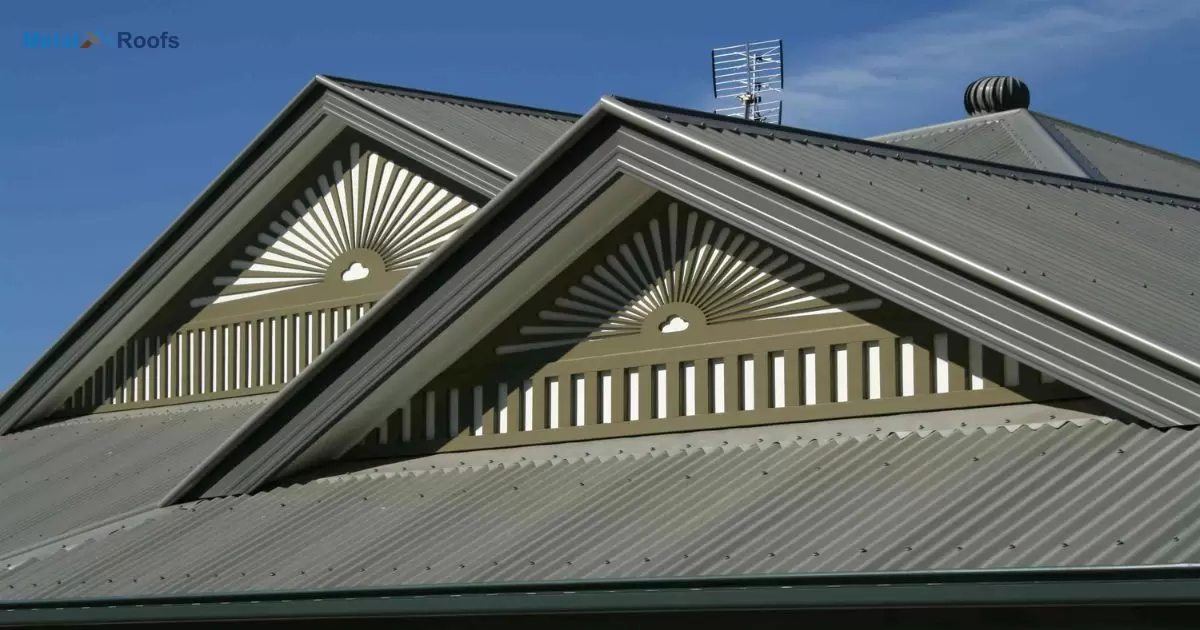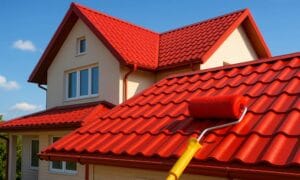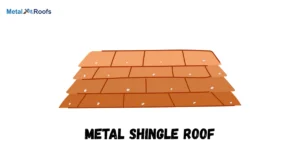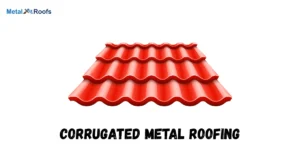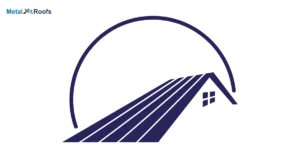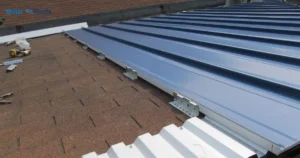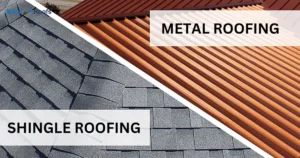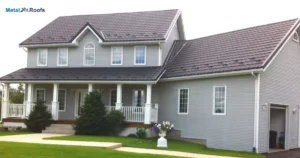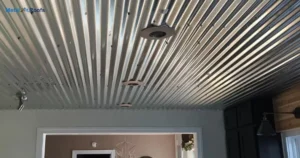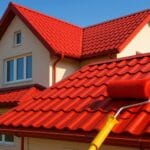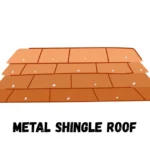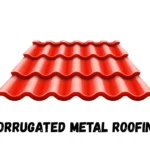Metal roofs cut insurance costs. They resist fire, high winds. Hurricane-proof equals lower rates. Florida sun beats asphalt shingles. Metal roofs reflect heat, save energy. Durable roofs last decades. Metal roofing boosts home value. Insurers reward resilient materials
Metal roofs save you money. Homeowners pay less for insurance. does a metal roof lower your insurance in florida? Yes, it protects your home. Durable materials resist hurricanes. Lower risks mean cheaper rates. Invest now, enjoy future savings. Smart choice for Florida homes.
Durable roofing materials in Florida must withstand hurricanes, hail, and heat. Incorporating insulation under metal roof ensures resilience against fierce weather, preventing rot, cracks, or curling. This not only lowers risks but also leads to savings on insurance premiums, making it a smart investment for homeowners.
Key Takeaways
- Metal roofs can lower insurance costs in Florida due to their durability.
- Insurers often offer discounts for metal roofs, seeing them as less risky.
- Discount amounts vary based on factors like the insurer and roof type.
- Check with insurers and compare quotes for potential savings.
Metal Roof Florida
In Florida, metal roofs are a smart choice. They’re sturdy and hold up well against hurricanes. Because of this, insurance companies often give discounts to homes with metal roofs. These discounts can save you money on your insurance premiums.
The amount of the discount varies depending on factors like the insurer and the type of metal roof you have. To find out how much you could save, it’s a good idea to reach out to insurers and compare quotes. With a metal roof, you can protect your home and potentially reduce your insurance costs in Florida.
New Roof Insurance Discount
| New Roof Type | Insurance Discount |
| Metal | Significant |
| Other Storm-Resistant | Varies |
Installing a new roof could mean savings on your insurance. Insurance companies often provide discounts for homes with new roofs because they’re less likely to experience damage. The discount varies depending on your insurer and where you live.
It’s worth checking with your insurance provider to see if you qualify for savings. Compare quotes to find the best deal for your home and budget. A new roof not only protects your home but also saves you money on insurance.
Roof Requirements For Homeowners Insurance In Florida
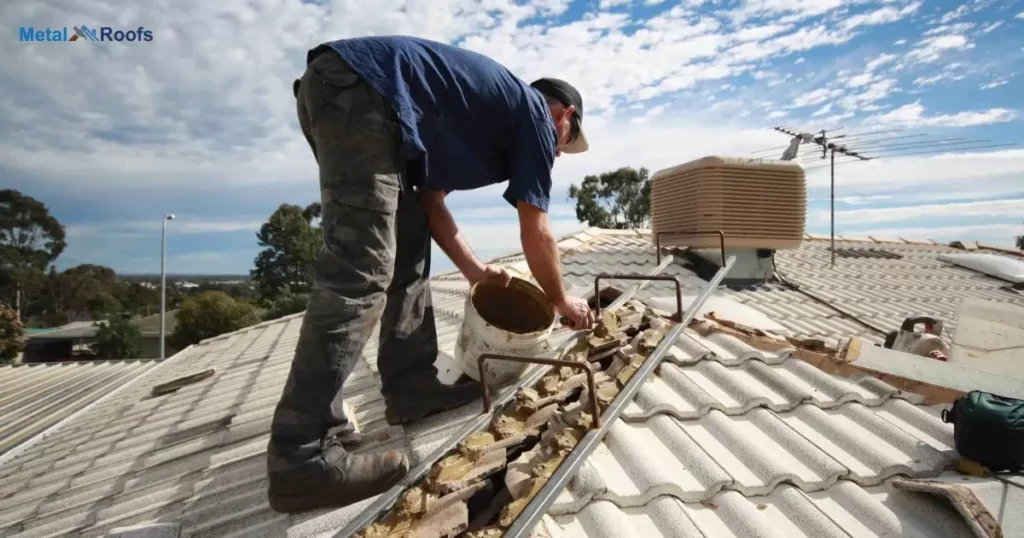
Homeowners insurance in Florida often has specific requirements regarding roofs. Insurance companies may require certain materials, like metal or asphalt, due to their durability. These materials are seen as more resistant to wind and storm damage.
Insurers might offer discounts for homes meeting these requirements, incentivizing homeowners to invest in sturdy roofs. The exact criteria can vary between insurance providers. It’s essential for homeowners to check their policy details and ensure their roof meets the specified requirements to qualify for potential discounts and comprehensive coverage.
How Long Will Insurance Cover A Metal Roof?
Insurance coverage for a metal roof typically lasts as long as your policy remains active. Most insurance providers offer coverage for the lifespan of the roof, which can range from 30 to 50 years. Coverage may vary based on factors such as the insurer’s policies and the condition of the roof.
It’s essential to review your insurance policy and consult with your provider to understand the specifics of your coverage. Regular maintenance and upkeep can help ensure your metal roof remains in good condition and eligible for insurance coverage throughout its lifespan. Insurers may require proof of maintenance to continue coverage.
Metal Roof Insurance Discount
Insurance companies in Florida frequently offer discounts for homes with metal roofs because they view them as sturdy and resilient, particularly in the face of hurricanes and strong winds. The amount of discount you receive depends on factors such as your insurance provider and the specific type of metal roof you have installed.
To determine the potential savings, it’s advisable to contact your insurance company directly and inquire about the discounts available for metal roofs. By comparing quotes from different insurers, you can identify the best coverage options and potentially reduce your insurance costs by opting for a metal roof.
Florida Insurance Roof Replacement Law
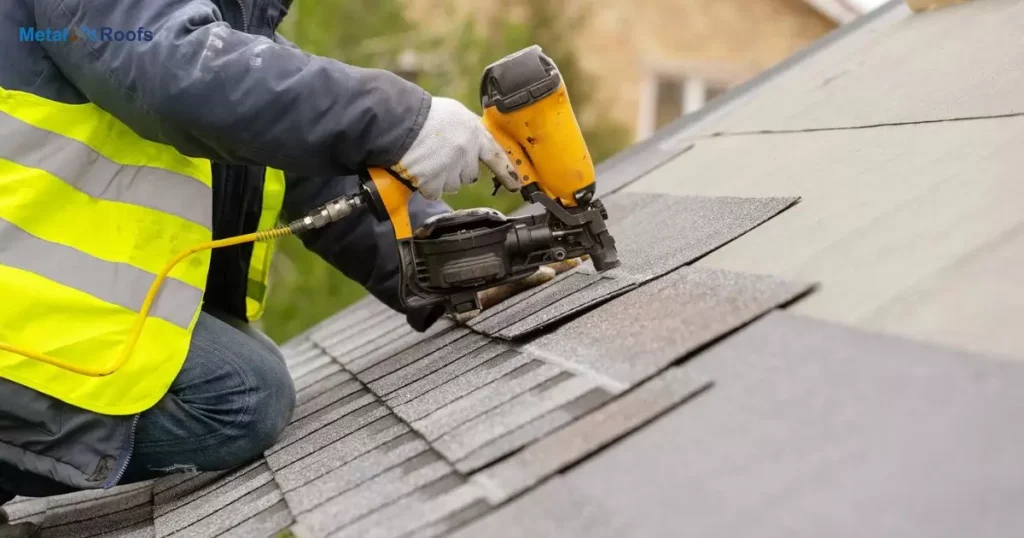
In Florida, insurance companies must cover the full cost of replacing a damaged roof if it’s over ten years old. This law aims to protect homeowners from bearing the entire financial burden of roof replacements after a hurricane or other covered event.
It ensures that insurance policies provide adequate coverage for essential repairs, maintaining the safety and integrity of homes in the state. Homeowners should be aware that insurance companies may depreciate the value of older roofs when determining coverage.
Insurance To Pay For Roof Replacement Florida
If you’re in Florida and need insurance to cover roof replacement, start by reviewing your policy. Ensure it includes coverage for roof damage, especially due to hurricanes or storms. Contact your insurance company and report the damage promptly. Provide clear documentation, including photos, of the roof’s condition.
Request an inspection from the insurance adjuster to assess the damage firsthand. Cooperate fully during the inspection process and be available to answer any questions they may have. Keep records of all communication and documentation for reference.
Metal Roof Benefits
Metal roofing offers numerous benefits:
Durability: Metal roofs are known for their longevity. They can withstand extreme weather conditions like heavy rain, snow, high winds, and even hail. Many metal roofs come with warranties lasting 30 years or more.
Energy Efficiency: Metal roofs can be coated with reflective materials that help reduce heat absorption, keeping your home cooler in hot climates. This can lead to lower energy bills, especially during the summer months.
Low Maintenance: Compared to other roofing materials like asphalt shingles, metal roofs require minimal maintenance. They are resistant to rot, mildew, and pests, and they don’t crack or curl over time.
Fire Resistance: Metal roofs are noncombustible, making them an excellent choice for areas prone to wildfires. This can provide peace of mind and potentially lower insurance premiums.
Environmentally Friendly: Metal roofing is often made from recycled materials, and it can be recycled again once it reaches the end of its lifespan. Its energy efficiency can help reduce your carbon footprint.
Aesthetic Appeal: Metal roofs come in a variety of styles, colors, and finishes, allowing homeowners to achieve the desired look for their homes. They can complement both modern and traditional architectural styles.
Increased Home Value: Installing a metal roof can increase the resale value of your home. Potential buyers appreciate the durability and energy efficiency of metal roofing, making it an attractive feature.
Lightweight: Metal roofing is typically much lighter than other roofing materials, which can reduce the strain on your home’s structure and potentially lower construction costs.
Overall, metal roofing offers a combination of longevity, durability, and energy efficiency that makes it an excellent choice for many homeowners.
Roof Type Impact
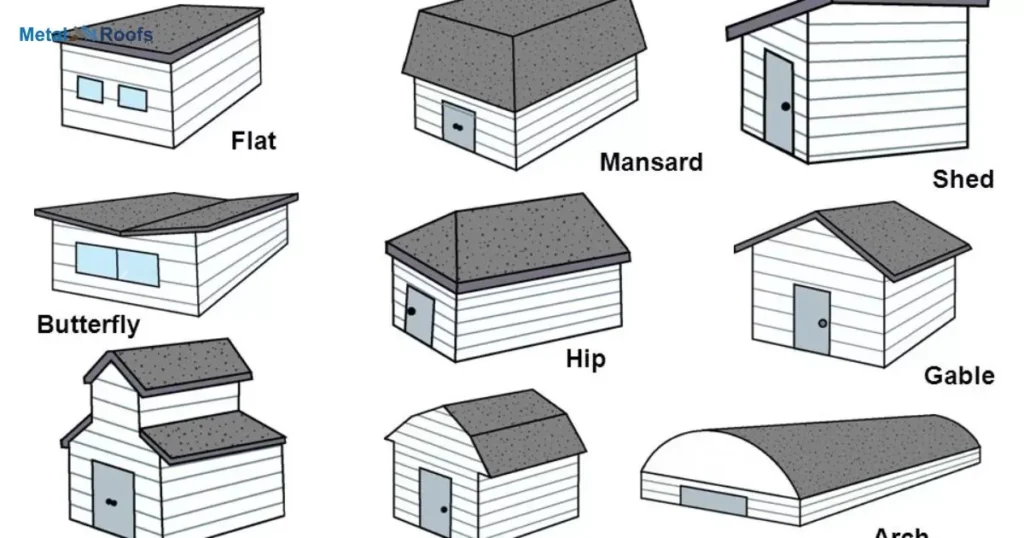
The type of roof you choose for your home can have various impacts, including:
Aesthetic Impact: The roof type significantly contributes to the overall appearance of a house. Whether it’s flat, gabled, hipped, or mansard, each style imparts a distinct look to the structure.
Durability and Longevity: Different roofing materials have varying lifespans and resistance to weather elements. For instance, metal roofs are known for their durability and longevity, while asphalt shingles are more affordable but may require more frequent replacement.
Energy Efficiency: Certain roofing materials, like metal and tile, have natural reflective properties that can help in keeping the house cooler, thus reducing energy costs for cooling during hot seasons. Proper insulation and ventilation also play crucial roles in energy efficiency.
Maintenance Requirements: The maintenance needs of a roof can vary depending on its material. Some materials, like metal and concrete tiles, are relatively low-maintenance, while others, like wood shakes, may require more regular upkeep.
Cost: The initial cost of installing a roof varies greatly depending on the material and complexity of the design. Long-term costs should be considered, including maintenance, repairs, and potential energy savings.
Weather Resistance: Different roof types have varying abilities to withstand extreme weather conditions such as wind, rain, snow, and hail. For example, metal roofs are highly resistant to fire and wind, while clay tiles are durable but may be prone to damage from heavy impacts like falling branches.
Resale Value: The type and condition of the roof can significantly impact the resale value of a home. A well-maintained roof made from quality materials can increase the overall value and appeal of the property.
When selecting a roof type, it’s essential to consider factors such as climate, budget, architectural style, and personal preferences to ensure you choose the option that best meets your needs and priorities.
Frequently Asked Questions
What Are The Disadvantages Of A Metal Roof?
Metal roofs can be noisy, prone to dents, costly to install, interfere with signals, require painting for corrosion prevention, and may develop leaks if not maintained well.
What Is The 15 Year Roof Rule In Florida?
In Florida, the 15-year roof rule suggests replacing roofs every 15 years to maintain insurance coverage and avoid policy issues.
What Is The New Law In Florida About Roofs?
Florida now mandates new residential buildings to have storm-resistant roofs like metal to improve resilience against hurricanes and reduce property damage.
Conclusion
The new law in Florida signifies a proactive step towards mitigating hurricane-related risks. By mandating storm-resistant roofs, the state aims to safeguard both property and lives. This measure underscores a commitment to building resilience and protecting communities from the devastating impacts of severe weather events.
Moving forward, homeowners should ensure compliance with the new roofing requirements to benefit from enhanced safety and potential insurance savings. Continued efforts in bolstering building codes and disaster preparedness remain essential.
